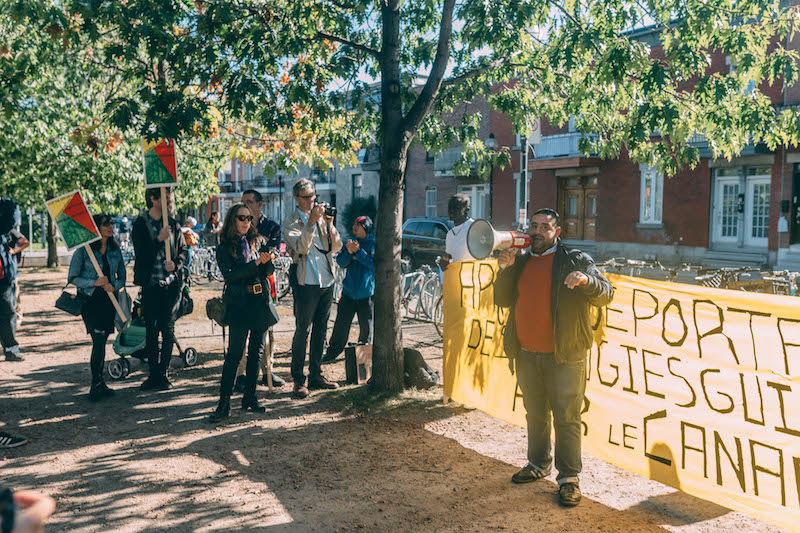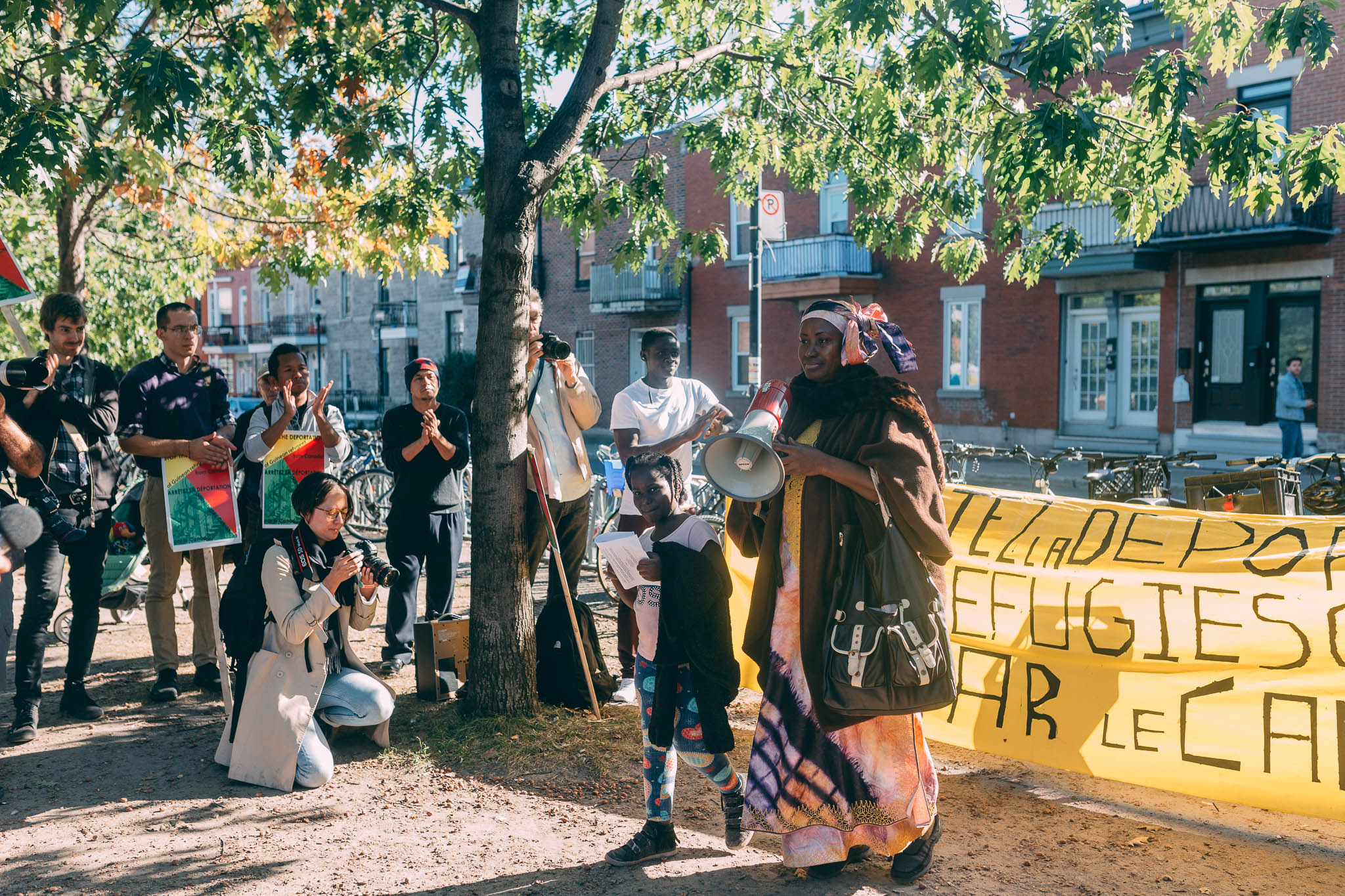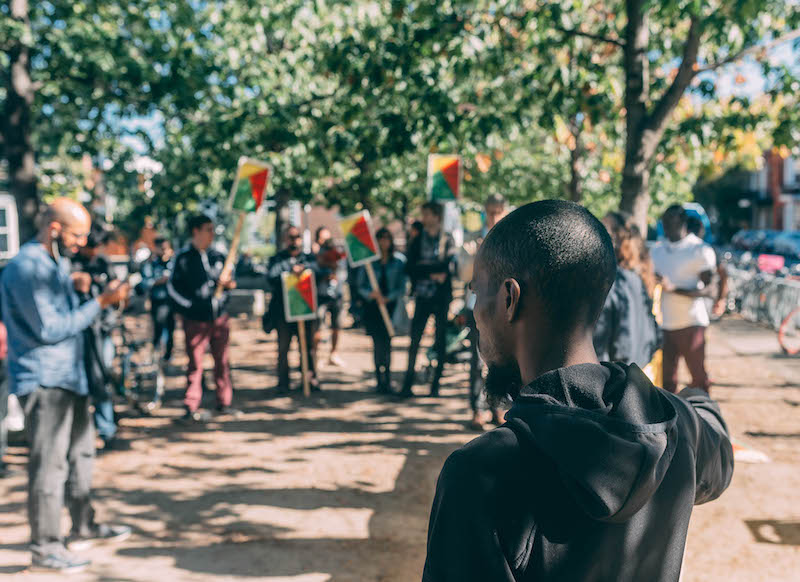With Ebola crisis over, Canadian government increases deportations to Guinea
Dozens gathered outside Mont-Royal metro station on Oct. 1 to protest against the possible deportation of several Guinean asylum seekers living in Montreal.
The demonstration was a joint effort by the Immigrant Workers Centre, an organization that advocates for the rights of immigrant workers, and the Comité des Guinéens pour un statut pour tous et toutes, which advocates for the right of Guinean asylum seekers to stay in Canada.
Mohamed Lamine Barry is one such asylum seeker. He came to Canada in 2011 and applied for asylum, but his claim was rejected in 2014. He said many of his friends were killed in the stadium massacre of 2009, in which Guinean security forces opened fire on a crowd of peaceful demonstrators in a stadium, killing at least 157 people and injuring thousands.
He said he doesn’t know why the Canadian government is not accepting his asylum claim or those of others.

“They know. The reality is there,” Lamine Barry said. “They want to protect their investors.” In 2015, the Trudeau government signed the Canada-Guinea Foreign Investment Promotion and Protection Agreement, despite the West African nation’s history of human rights abuses.
Lamine Barry said, if he is returned to Guinea, his life will be in danger. However, he still has hope the government will reverse its decision.
“That’s why we’re fighting, why we’re denouncing this injustice,” he said.
During the Ebola crisis, from 2013-2016, Canada slowed its deporting of asylum seekers back to Guinea, which was at the epicentre of the crisis. However, with the outbreak over, Canada has resumed deporting of Guinean Montrealers.
While there are 10 Guineans facing deportation who are active in the Comité des Guinéens, Mostafa Henaway, the Immigrant Workers Centre’s community organizer, said that number is not fully representative—there are likely many more in the community facing deportation.
According to Henaway, none of the 10 asylum seekers have dates set for their deportation, a process which generally takes one to three years. He estimates there are between 5,000 and 10,000 Guineans living in Montreal.

According to Human Rights Watch, Guinea has shown some improvements in human rights since its president, Alpha Condé, was elected for his second term in 2015. These changes include a reduction in police violence and ethnic tensions. However, abuses of power by police and military are still common in Guinea, as is violence against women and girls.
Women in Guinea face a serious risk of female genital mutilation (FGM). According to a 2013 report by UNICEF, 96 per cent of women in Guinea aged 15 to 49 have undergone some form of FGM. This rate makes the country second only to Somalia.
Akolie Fadima Gunn is one such victim. In a speech given at Sunday’s demonstration, she spoke of her seven-year-old daughter, who stood by her side: “If we return to Guinea, she will be mutilated, that is for sure.”
Photos by Kirubel Mehari




